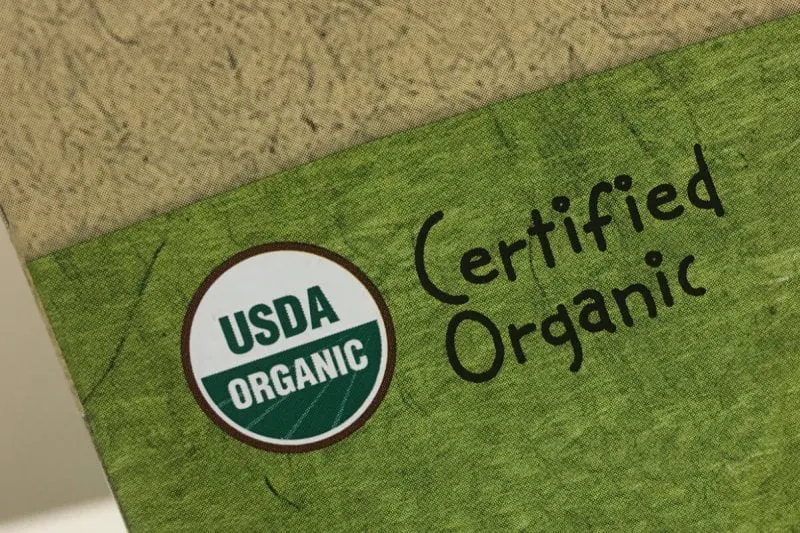Viewpoint: How organic labeling and marketing undermines efforts to reduce carbon emissions and improve farming sustainablity
Viewpoint: How organic labeling and marketing undermines efforts to reduce carbon emissions and improve farming sustainablity


Officially, the Environmental Protection Agency defines organic food as: “Food grown and processed using no synthetic fertilizer or pesticides.”
Products emblazoned with the U.S. Department of Agriculture’s organic seal follow these guidelines. And this system has proven to be financially lucrative.
A 2021 study found that most customers perceive organic food as healthier than conventionally grown produce—even if they don’t actually know what “organic” really means.
Pro-organic lobbying groups are taking advantage of this confusion, employing the label to cudgel against new types of food production technologies that could enjoy a massive boost if included.
Foods altered by biotechnology—i.e. GMOs—are unsurprisingly excluded from taking part in the organic farming market, despite the fact that they could be critical to helping us feed the world as climate changes, population increases, and disappearing arable land threatens to decimate some of our most important farming sectors.
…
In April of 2021, Oregon Congressman Peter DeFazio introduced the Continued Improvement and Accountability in Organic Standards Act, a bipartisan bill meant to improve federal oversight of organic processes and standards.
The bill hopes to finally update outdated language and open up the organic certification process to a more diverse field of food production. Hopefully, this includes laying out a path for bioengineering, and thus rapid growth in sustainability potential, within the organic market.
This is an excerpt. Read the original post here.

 | Videos | More... |

Video: Nuclear energy will destroy us? Global warming is an existential threat? Chemicals are massacring bees? Donate to the Green Industrial Complex!
 | Bees & Pollinators | More... |

GLP podcast: Science journalism is a mess. Here’s how to fix it

Mosquito massacre: Can we safely tackle malaria with a CRISPR gene drive?

Are we facing an ‘Insect Apocalypse’ caused by ‘intensive, industrial’ farming and agricultural chemicals? The media say yes; Science says ‘no’
 | Infographics | More... |

Infographic: Global regulatory and health research agencies on whether glyphosate causes cancer
 | GMO FAQs | More... |

Why is there controversy over GMO foods but not GMO drugs?

How are GMOs labeled around the world?

How does genetic engineering differ from conventional breeding?
 | GLP Profiles | More... |

Alex Jones: Right-wing conspiracy theorist stokes fear of GMOs, pesticides to sell ‘health supplements’




 Viewpoint — Fact checking MAHA mythmakers: How wellness influencers and RFK, Jr. undermine American science and health
Viewpoint — Fact checking MAHA mythmakers: How wellness influencers and RFK, Jr. undermine American science and health Viewpoint: Video — Big Solar is gobbling up productive agricultural land and hurting farmers yet providing little energy or sustainabilty gains
Viewpoint: Video — Big Solar is gobbling up productive agricultural land and hurting farmers yet providing little energy or sustainabilty gains Trust issues: What happens when therapists use ChatGPT?
Trust issues: What happens when therapists use ChatGPT? Fighting deforestation with CO2: Biotechnology breakthrough creates sustainable palm oil alternative for cosmetics
Fighting deforestation with CO2: Biotechnology breakthrough creates sustainable palm oil alternative for cosmetics California, Washington, Oregon forge immunization alliance to safeguard vaccine access against federal undermining
California, Washington, Oregon forge immunization alliance to safeguard vaccine access against federal undermining 30-year-old tomato line shows genetic resistance to devastating virus
30-year-old tomato line shows genetic resistance to devastating virus The free-range chicken dilemma: Better for birds, but with substantial costs
The free-range chicken dilemma: Better for birds, but with substantial costs ‘You have to treat the brain first’: Rethinking chronic pain with Sanjay Gupta
‘You have to treat the brain first’: Rethinking chronic pain with Sanjay Gupta
